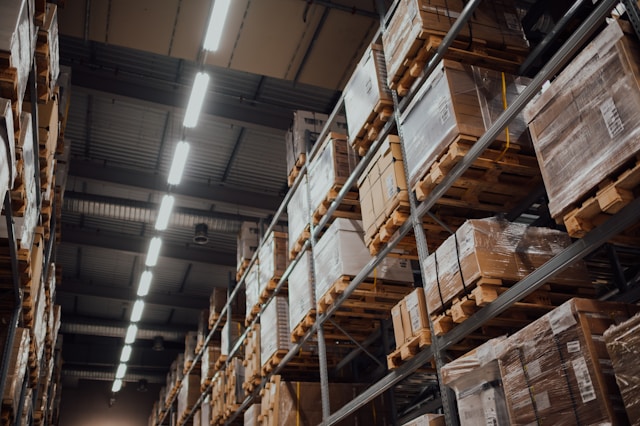When it comes to acquiring a car for your business, the question often arises: should you lease or buy? This decision carries significant financial implications, hence it’s essential to evaluate the pros and cons of each option carefully. Buying a car might be the intuitive choice, but car leasing can often offer flexibility, especially in terms of cash flow and the ability to upgrade to newer models. Conversely, while outright purchase may require a larger upfront cost, it could be more cost-effective in the long run.
In this piece, we’ll delve into the considerations that can help guide your decision-making process in this realm, laying out the benefits, drawbacks, and potential impacts of both leasing and buying a business car. We aim to provide you with the necessary insight to make an informed decision that aligns with your business needs and financial circumstances.
Assess Your Business Needs
Begin by examining the nature of your business and how the car will be used. If your enterprise demands a lot of travel, or you need to keep up with a certain image, leasing might be a better option as it allows you to drive a newer vehicle every few years.
On the other hand, if long-term cost is a major concern, and you expect the vehicle to maintain a predictable condition, buying might be the more sensible choice.
Additionally, for those who are budget-conscious and want to maximize value, considering used cars can open up another avenue of exploration. Used cars can offer significant savings over new ones while still providing reliable performance and features. If you want to be extra safe and cautious, you could always research a detailed FAQ for buying and selling used cars from professionals, which should put things into perspective for you. Also, consider factors like the total mileage you anticipate driving annually, as leases often come with mileage restrictions.
Consider Cash Flow
If your business is in its early stages and cash flow is a key concern, leasing might provide a lower monthly cost, freeing up cash for other operational expenses.
Leasing often means lower monthly payments compared to buying a car with a loan, even when considering the same car for the same term. This is because, with a lease, you’re essentially paying for the depreciation that occurs over the lease term, plus interest and fees, while with a purchase, you’re paying for the entire value of the vehicle, plus interest and fees.
Consequently, leasing can free up significant cash each month, which can be used towards other business expenses or put into savings. However, it’s essential to remember that a lease is not an investment. At the end of the lease term, you won’t own the car and will have to lease or buy another.
When you purchase a vehicle, it becomes an asset, and even though the monthly payments may be higher, you’re investing in an asset that can be sold or traded in the future. Hence, understanding your business’s cash flow situation and long-term financial goals is key to making the right decision.
Think About the Future
If your business is rapidly growing or evolving, its needs might change over time. If you anticipate needing a different kind of car in a few years, it may make more sense to lease, as leases typically run for two to four years, and it’s easier to switch vehicles at the end of each lease term. If you expect your business needs to remain stable, buying a car could be the better option, as you’ll have the freedom to use the vehicle as you wish for as long as it remains operational.
Keep in mind that the car you choose now can have a considerable impact on your business’s image. If a stylish, up-to-date vehicle is key to your branding, leasing might be preferable, as it allows for regular upgrades. If reliability and durability are more important than aesthetics, buying a used or new car could be a wiser choice, as it will be a long-term business asset.
Your projections for the future of your business, therefore, play an essential role in determining whether leasing or buying is more advantageous.
Calculate Total Costs

When leasing, upfront costs are usually low, but the recurring monthly payments can add up over time. In addition, hidden costs such as penalties for excess mileage or damages to the vehicle can significantly inflate the overall cost of leasing.
Buying a car means a larger initial expense, but thereafter only the maintenance and repair costs. Also, a purchased vehicle can be treated as a business asset and can be depreciated over time, possibly offering tax advantages down the line. However, the car’s resale value could depreciate significantly over time, which is a factor to consider. Thus, you should perform a comprehensive cost analysis, factoring in all possible expenses, and comparing the figures. This will provide a more accurate picture of which option – leasing or buying – is economically more feasible for your business.
Evaluate the Impact on Taxes
Considering the impact on taxes is a crucial factor in your decision between leasing or buying a business car. When you lease a car, you can usually deduct the lease payments as a business expense, reducing your taxable income. However, if the car is used for both business and personal use, the deduction will only apply to the business portion of use.
On the other hand, if you purchase a car, you may be able to take advantage of tax deductions for depreciation. The IRS allows you to subtract a specified amount of the car’s value from your income each year, potentially leading to significant savings. However, these deductions are often subject to limits and restrictions, and the rules can be complex.
It’s important to consult with a tax professional to understand how leasing or buying will affect your business taxes. Remember, tax considerations should not solely drive your decision, but they are an important piece of the overall financial picture.
In conclusion, the decision to lease or buy a business vehicle is not straightforward and you must consider a myriad of factors including business needs, cash flow, anticipated future requirements, total cost, and tax implications. While leasing may offer an initial lower cost and the flexibility to change vehicles, buying can provide long-term value and the advantage of owning a business asset.
Each option comes with its own set of advantages and potential drawbacks. Therefore, it’s crucial to conduct a thorough analysis based on your unique situation to make the most informed decision. Engaging the services of a financial advisor or tax professional can be extremely beneficial in navigating this complex decision. Ultimately, the best choice will depend on the specific circumstances and long-term strategic goals of your business.







